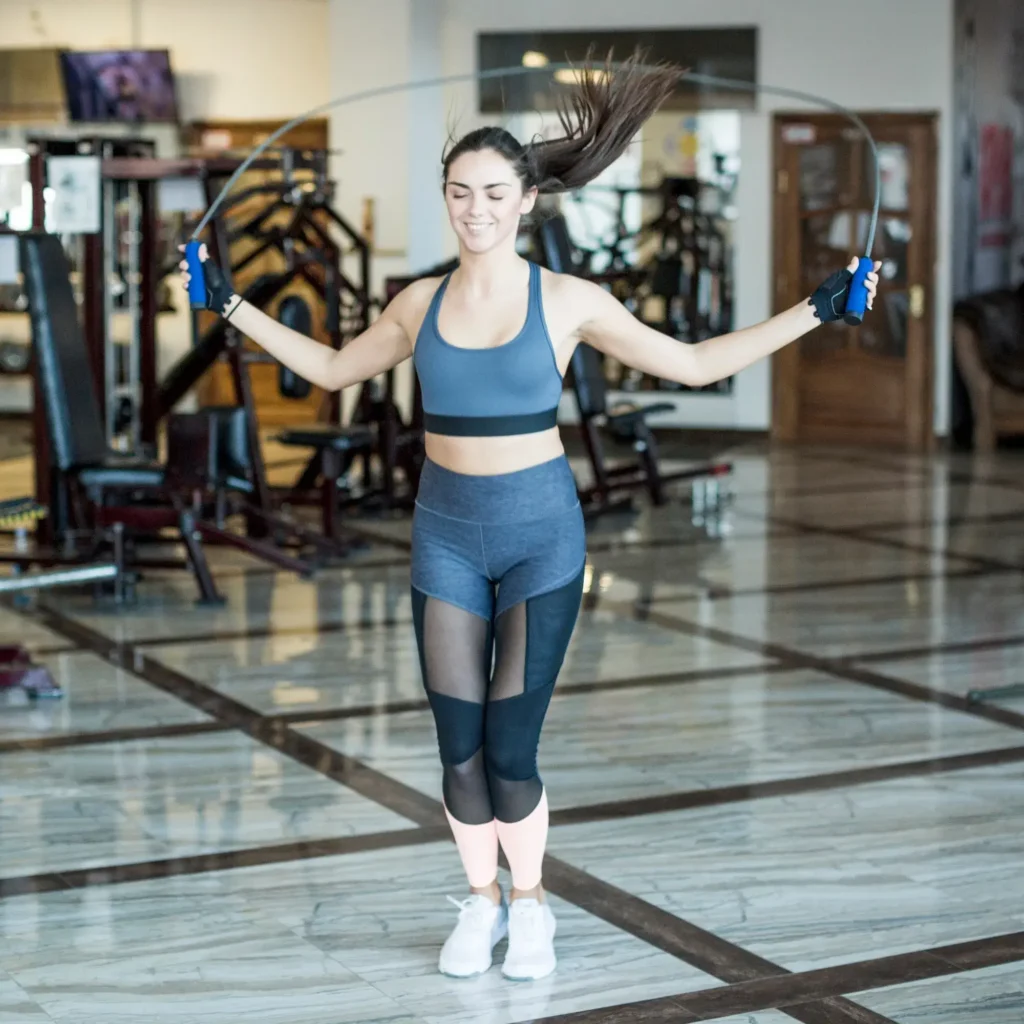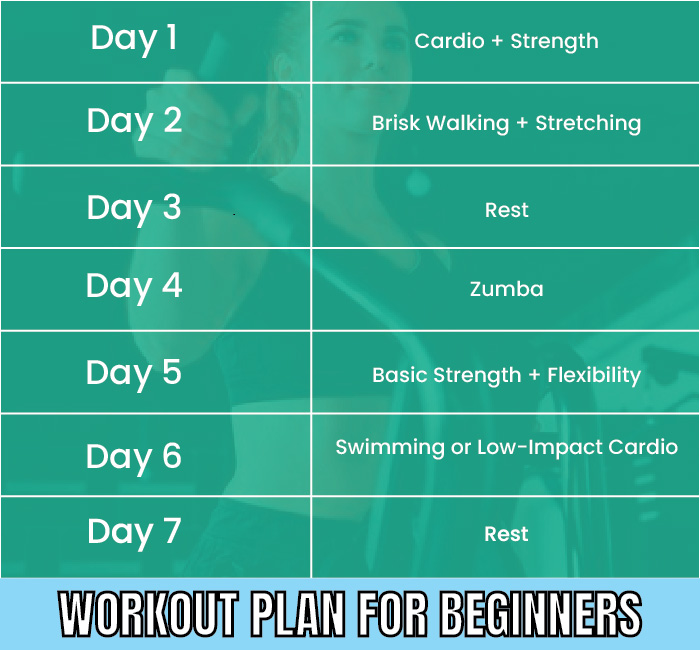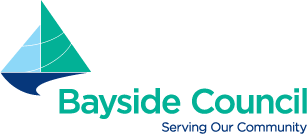Weight loss is a super common goal for many people, and if you search “how to lose weight” on Google, you’ll be bombarded with tons of suggestions—from trendy diets to various fitness challenges. With so much information out there, it can be hard to find what’s useful and to figure out what suits you best. The reality is, there’s no one-size-fits-all solution for weight loss, and those workout and diet plans aren’t magic fixes. Everyone’s journey is different, so don’t lose hope. We’re here to break down the essentials of weight loss, offering a realistic workout plan for beginners to really kick things off.
How does weight loss work for beginners?
So, what really makes you lose weight as a beginner? And how can you tell if your body is actually burning fat? Let’s break it down.
First off, when people talk about wanting to lose weight as a beginner, they’re usually aiming for fat loss instead. A big myth in the fitness world is that if the scale shows a lower number, it means you’re shedding fat.
But here’s the deal: that number reflects your total body weight, which includes everything—bones, muscles, water, and fat. Your weight can change from day to day based on these factors, but weight loss takes time and happens when you burn more calories than you take in.
The basics of weight loss
1. Talk to an expert
Before getting into a beginner weight loss workout or any exercise routine, make sure you’re in good health and don’t have any hidden medical issues. It’s a good idea to chat with an expert about how hard and how often you should be working out. They can help you set realistic weight loss goals and figure out a nutrition plan that works for you.
2. Exercise
Another key element in the weight loss journey is definitely exercise. So, how much should you be working out? The latest study suggest that adults should aim for at least 150 minutes of moderate exercise each week, plus two days of strength training.
Here are some ideas:
- Spend 30 minutes at the gym five times a week
- Go for 50 minutes at the gym three times a week
- Do strength training at home or the gym twice a week
- Take brisk walks during the week
Whatever your exercise routine looks like, the main thing is to keep your body active on a regular basis. The best workouts for weight loss are the ones you actually enjoy, so find what suits you best.


3. Have nutritious food
You can’t outwork a bad diet. Just keep in mind that low-calorie diets aren’t really a long-term solution; they can lead to muscle and bone loss while also slowing down your metabolism, thus not contributing towards the weight loss. Plus, you might miss out on important nutrients your body needs. To lose weight, focus on moving more and burning off more calories than you consume.
Here are some tips to consider before you hit the grocery store:
- Go for a diet rich in fibre and healthy fats, like olive oil and avocados.
- Chuck out refined carbs such as biscuits, cakes, sugary drinks, and white bread for more nutritious options like whole grains, fruits, and drink plenty of water (if plain water gets boring, try adding some flavour).
- Go for low-fat dairy products instead of full-fat options like milk, yoghurt, and cheese. You might also want to check out plant-based alternatives like almond, soy, or oat milk.
- Pick whole-grain bread and cereals, and load up on fruits, veggies, beans, nuts, and seeds.
- Choose lean meats or vegetarian options.
- Finally, ditch the fast food and stick to less processed whole foods to cut down on added sugars, excess sodium, and other additives.
4. Sleep
Looking to keep those weight-loss results for the long haul? Get some good sleep. Sticking to a regular sleep schedule can help you in weight loss and keep them off in the long run.
5. Rest & Recovery
Rest days are super important for a solid weight-loss workout plan. Regardless of how fit you are, your body needs some downtime to recover and fix those muscles after tough workouts. Overdoing it can actually slow down your progress towards your fitness goals. Make sure to add some active recovery to your gym schedule to enhance your flexibility, lift your spirits, boost your energy, and keep you on track with your weight loss journey. Check out these activities for your next rest day:
- Dynamic stretching
- Light cardio, like a jog on the treadmill
- Swimming
- A nice long walk
- Yoga

Workout plan
So, you’ve made the decision to hit the gym, signed up for a membership, and packed your bag. That’s fantastic! Now, what’s the next step? It’s time to put together a beginner workout plan that’ll help you feel more confident and ready for your first few trips to the gym. There’s no strict rule on how many hours you should spend working out each week, but taking some extra time to familiarise yourself with the gym equipment can really pay off later. Starting out at the gym doesn’t have to be scary or confusing. Use this beginner workout plan to launch your fitness journey.
Workout plan for beginners
Day 1: Cardio + Strength
- 20-30 minutes of light cardio (e.g., jogging, cycling)
- 15 minutes of basic bodyweight exercises (squats, push-ups, planks)
Day 2: Brisk Walking + Stretching
- 30 minutes of brisk walking
- 10-15 minutes of full-body stretching
Day 3: Rest
Day 4: Zumba
- 30-40 minutes of Zumba.
Day 5: Basic Strength + Flexibility
- 15 minutes of bodyweight strength exercises (lunges, planks)
- 15 minutes of flexibility exercises (yoga or stretching)
Day 6: Swimming or Low-Impact Cardio
- 30-40 minutes of swimming or a low-impact cardio activity

Kicking off a new workout routine can be tough but setting clear fitness goals can really help you stick with it over time. There are tons of different workouts out there, so find a few that you enjoy and mix them up every now and then. The key is to take it easy at first, gradually increase your fitness level, and give your body some downtime to avoid injuries. Keeping track of your progress or joining a fitness centre can be great ways to stay inspired and hit your targets. Don’t forget to eat well, stay hydrated, and check in with your doctor to keep an eye on your health.
Explore our group fitness sessions and burn those extra pounds with fun.
So, what are you waiting for? Become a member and start exercising today!



